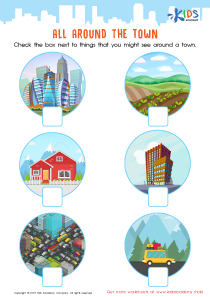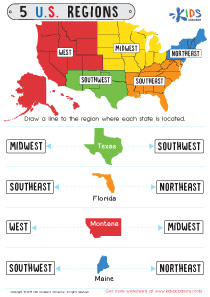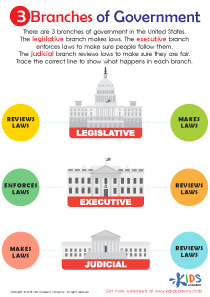Critical Thinking Normal History Worksheets for Ages 6-9
15 filtered results
Difficulty Level
Grade
Age
-
From - To
Subject
Activity
Standards
Favorites
With answer key
Interactive
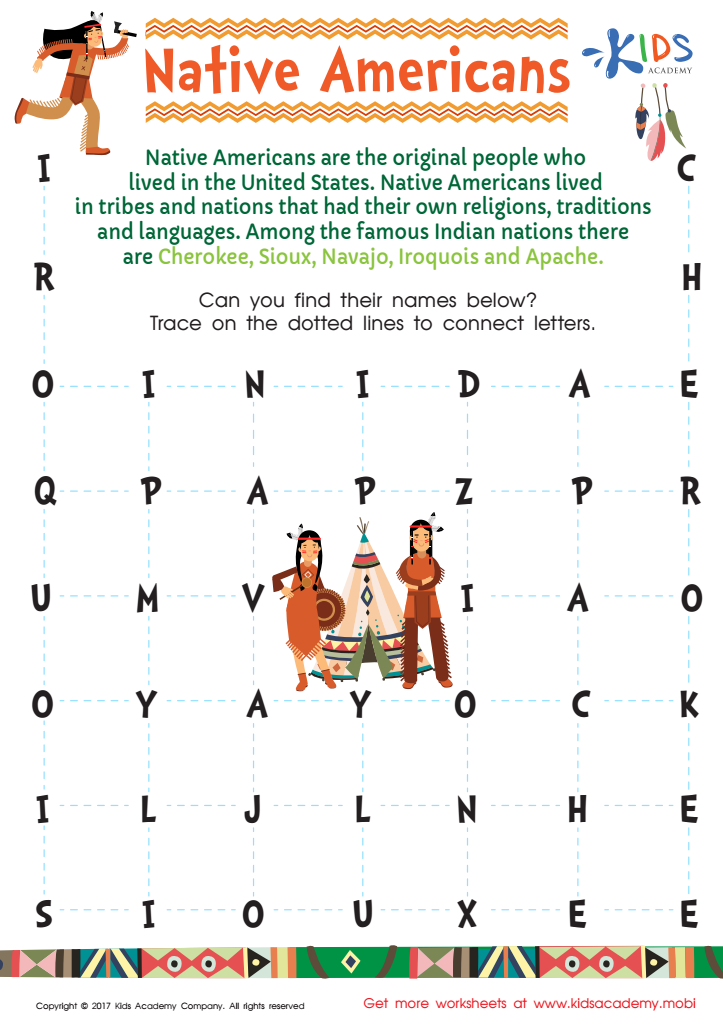

Native American Word Search Printable
This Native American word search PDF helps kids review important vocabulary and concepts about this important part of our county's history. It includes the names of famous and prominent Native American tribes. Solving the puzzle is fun and educative!
Native American Word Search Printable
Worksheet
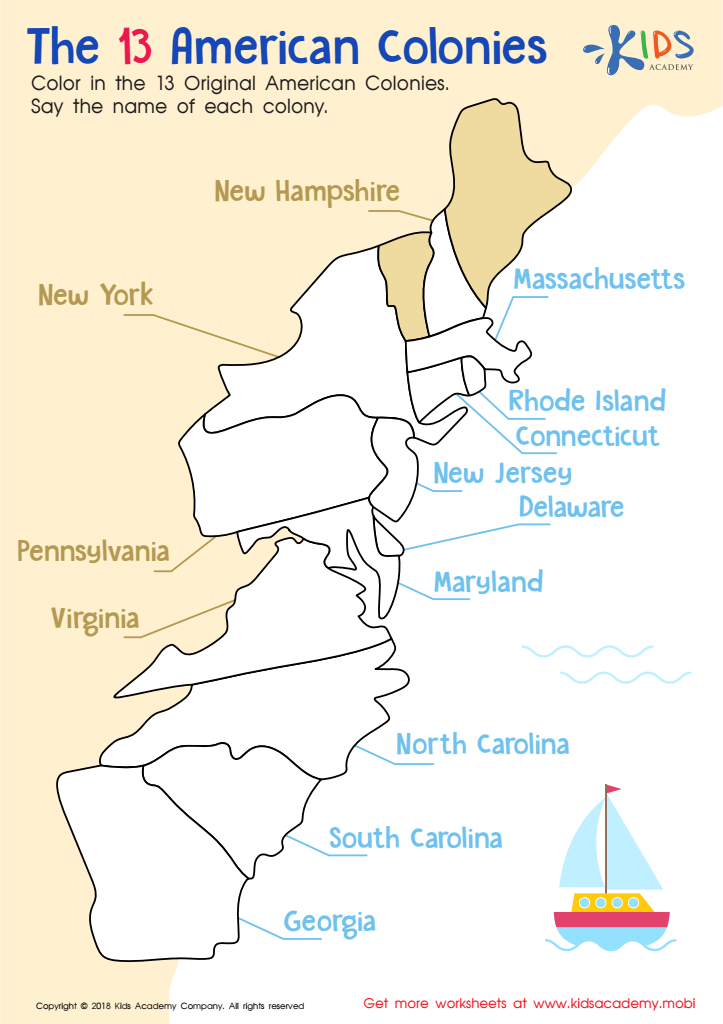

The 13 American Colonies Worksheet
Ensure kids are knowledgeable in maths, English, science, history, and geography. Test their American knowledge: Can they name the 13 Original American Colonies? Use the worksheet; have them color each colony and name it out loud.
The 13 American Colonies Worksheet
Worksheet
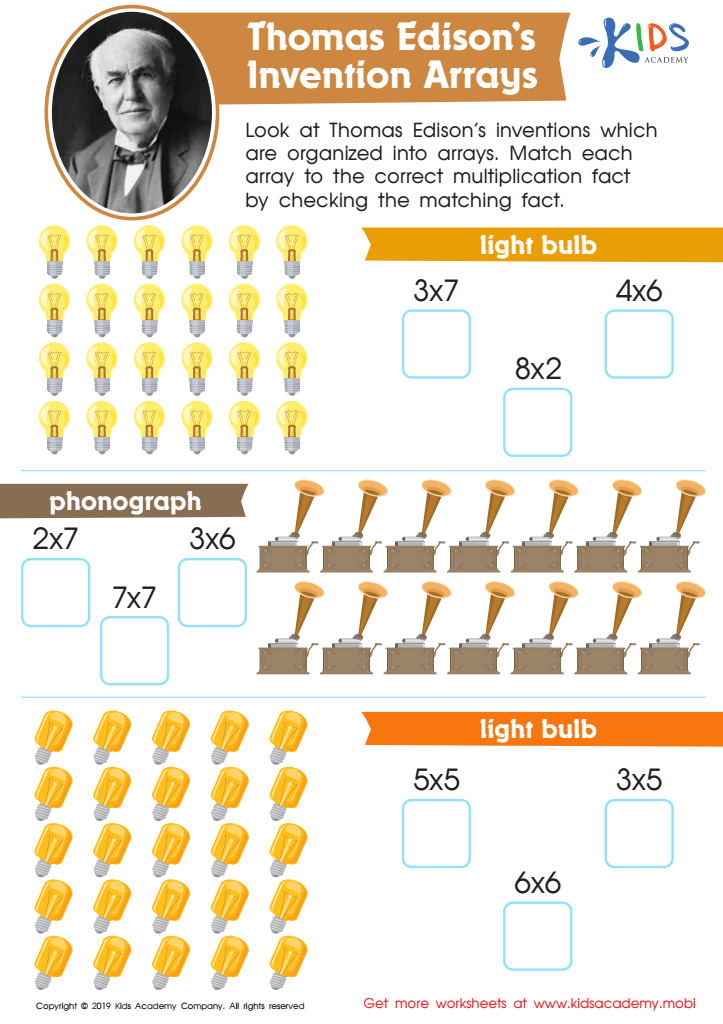

Thomas Edison’s Invention Arrays Worksheet
Test your students' knowledge on history by asking them what Thomas Edison invented. If they get the right answer, provide more information on other inventors. Check out this printout of Edison's light bulb inventions laid out in arrays. Get them to match each array to the correct multiplication fact.
Thomas Edison’s Invention Arrays Worksheet
Worksheet
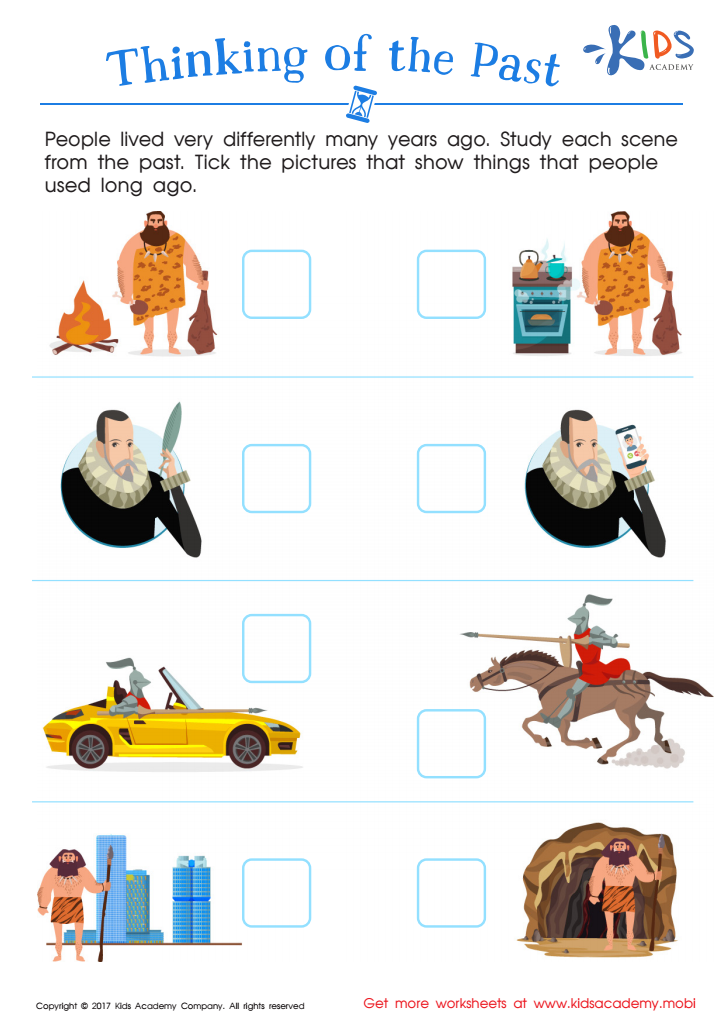

Thinking Past Printable
Bring the past to life for your kid with this fun worksheet! They'll use logic to choose the right answer, learning about different eras and how people lived in them. With a colorful caveman and modern skyscraper side by side, they won't even realize they're building historical knowledge.
Thinking Past Printable
Worksheet
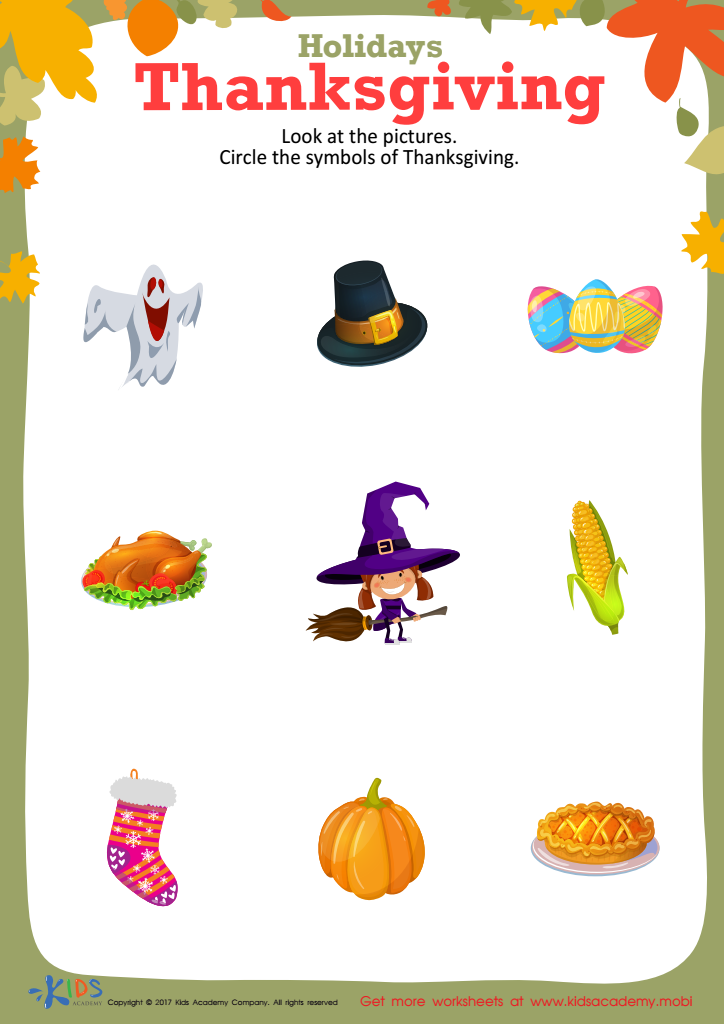

Thanksgiving Holiday Printable
Thanksgiving is here! Celebrate by showing appreciation and giving thanks. Teach your kids about the iconic symbols of the holiday with this free printable worksheet. Enjoy America's most famous feast!
Thanksgiving Holiday Printable
Worksheet
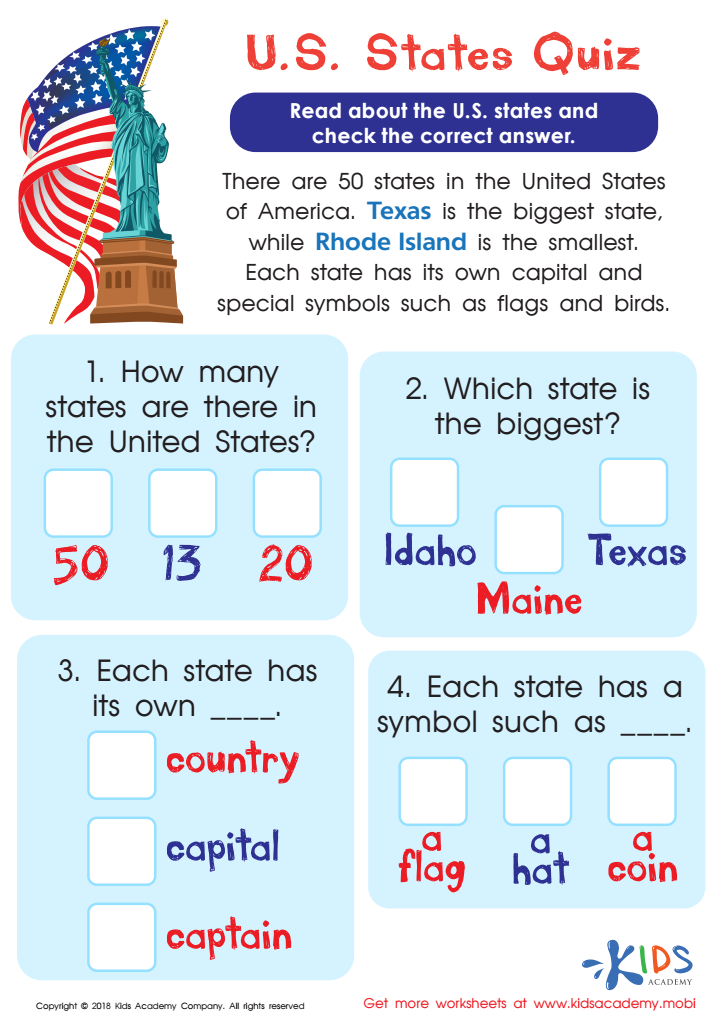

U.S. States Quiz Worksheet
Help your young historians reinforce their knowledge of the U.S. with this fun, free PDF worksheet! It'll assess their understanding of the fifty states and strengthen their visual discrimination skills too - they'll pick out the correct answers, with colorful word-coding. Give it a try!
U.S. States Quiz Worksheet
Worksheet
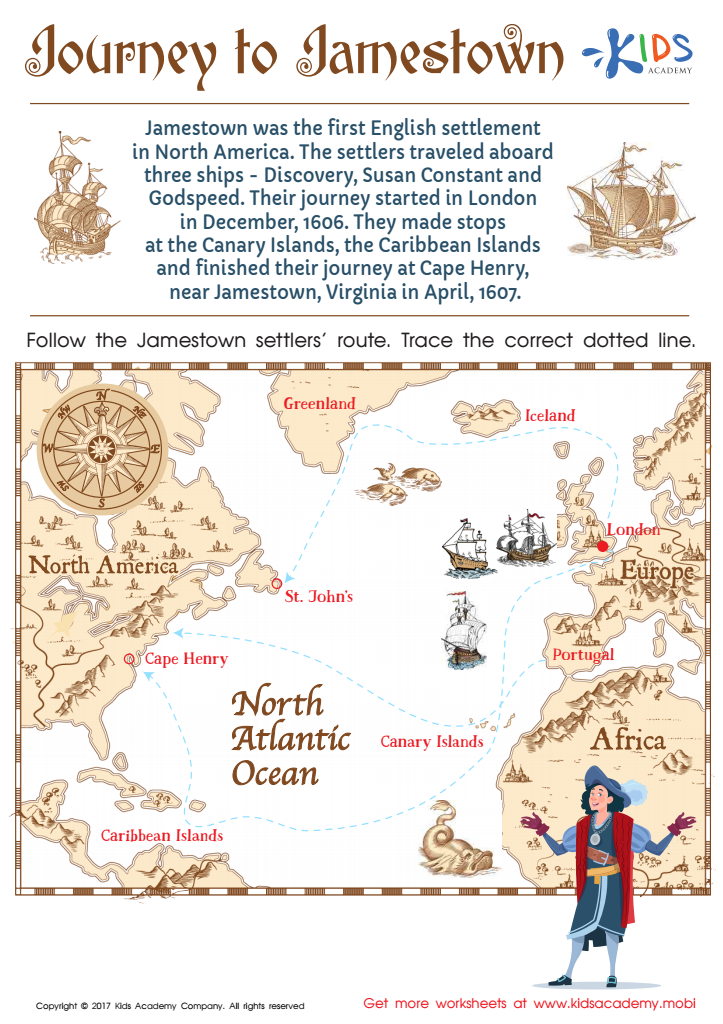

Journey to Jamestown Worksheet
Hit the high seas with this Journey to Jamestown worksheet and uncover the route the first pilgrims took to America! Kids explore a map and learn about stops the pilgrims made during their historic voyage.
Journey to Jamestown Worksheet
Worksheet
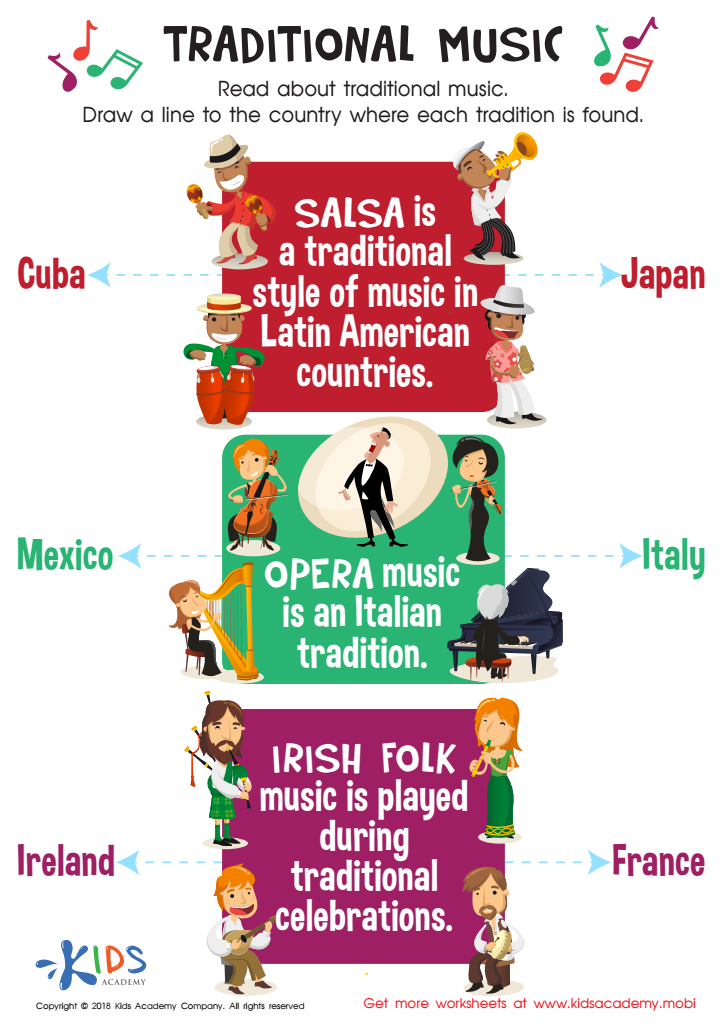

Traditional Music Worksheet
Exploring different countries' music is a great way for global learners to appreciate their place in the world. This worksheet helps them match music - like Salsa and Irish Folk - to various geographic regions with colorful visuals. It boosts reading comprehension while supporting their cultural understanding.
Traditional Music Worksheet
Worksheet
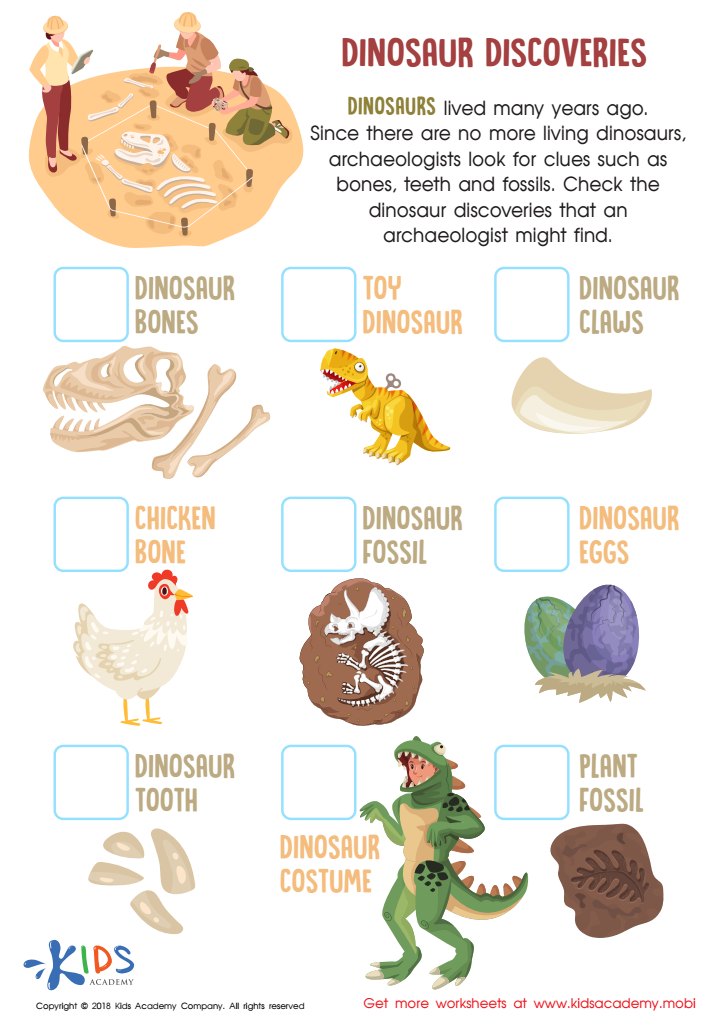

Dinosaur Discoveries Worksheet
Kids love the fascinating world of dinosaurs! This free worksheet educates them on how archeologists discover clues from their fossils, teeth, and bones. They'll identify items that are fossils with the help of pictures and choices provided. Learning has never been this fun!
Dinosaur Discoveries Worksheet
Worksheet
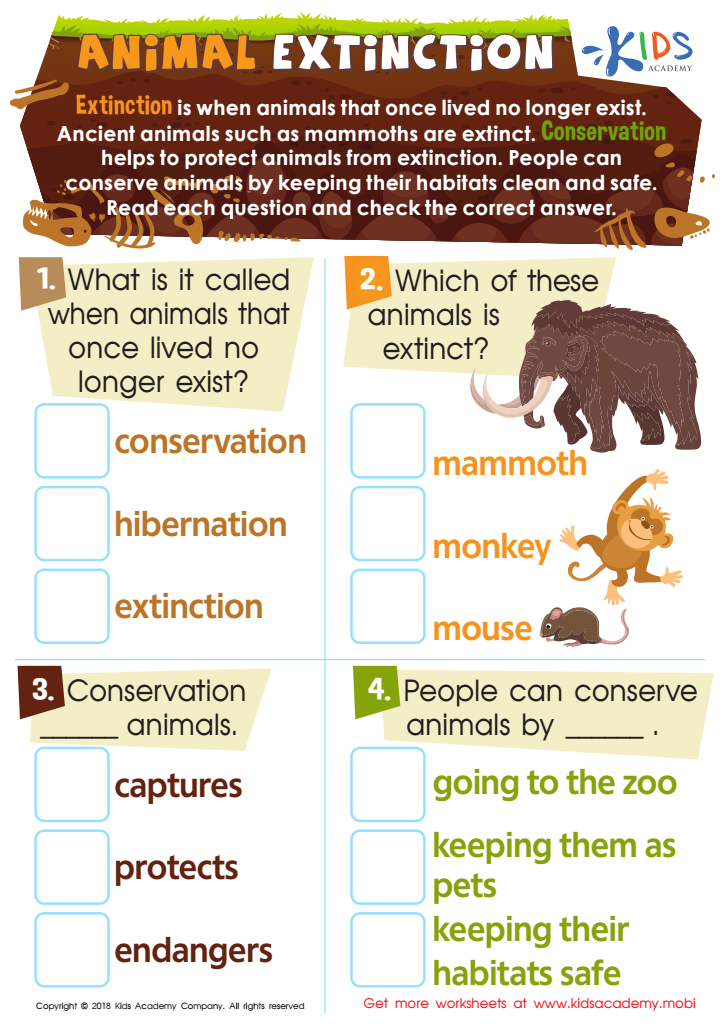

Animal Extinction Worksheet
Children can learn how their actions can help endangered animals with this free PDF worksheet. It explains extinction, looks at the mammoth as an example, and poses questions about conservation. Keeping habitats clean and safe is key to protecting animals and keeping them abundant. Learning about this now can make a huge difference for future generations.
Animal Extinction Worksheet
Worksheet
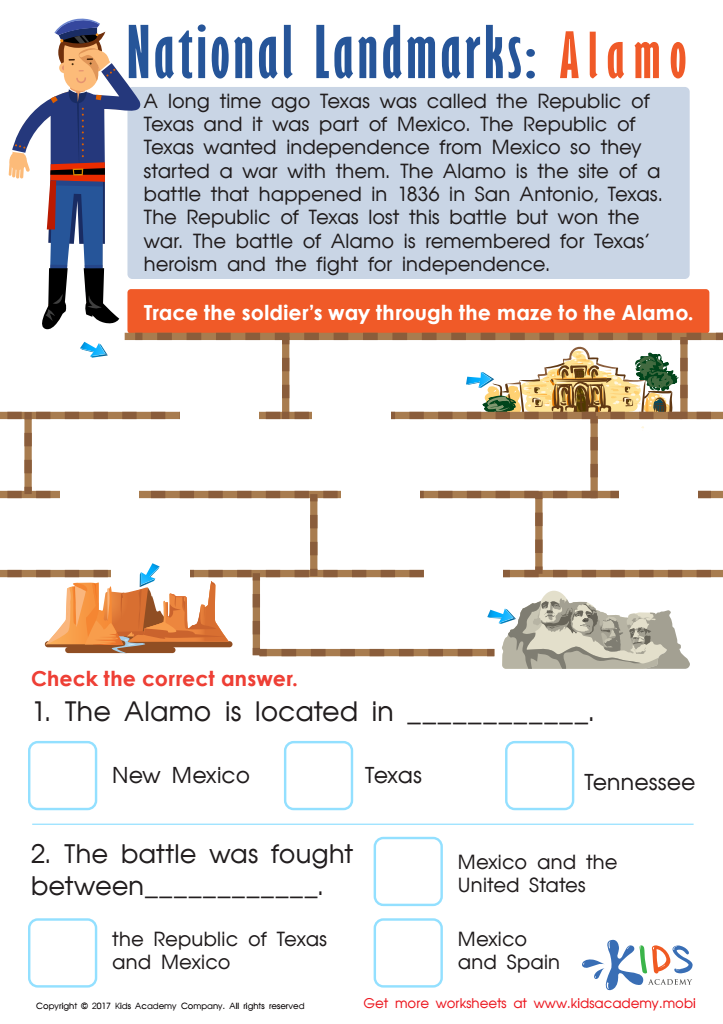

Alamo Printable Worksheet
Take your child on an educational journey to the Alamo! Our printable worksheet offers an interactive maze to explore the Republic of Texas and the fight for independence from Mexico.
Alamo Printable Worksheet
Worksheet
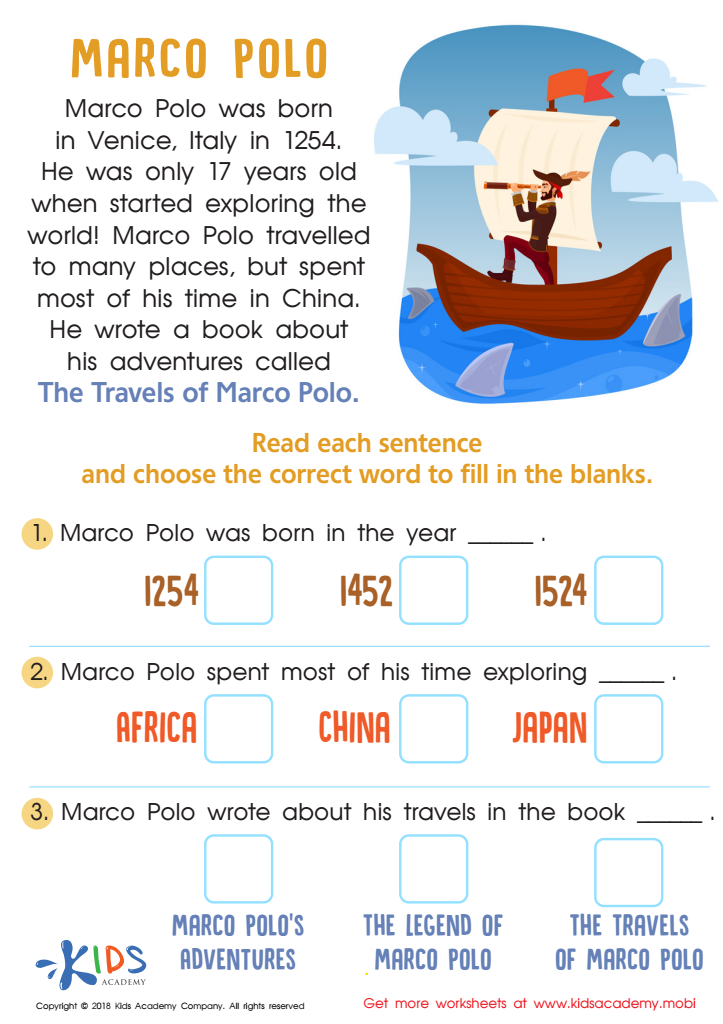

Marco Polo Worksheet
This free worksheet teaches kids about Marco Polo, the world explorer from Venice. They'll read about his journeys and the book he wrote and answer comprehension questions with multiple-choice boxes. He was just 17-years old when he started his travels!
Marco Polo Worksheet
Worksheet
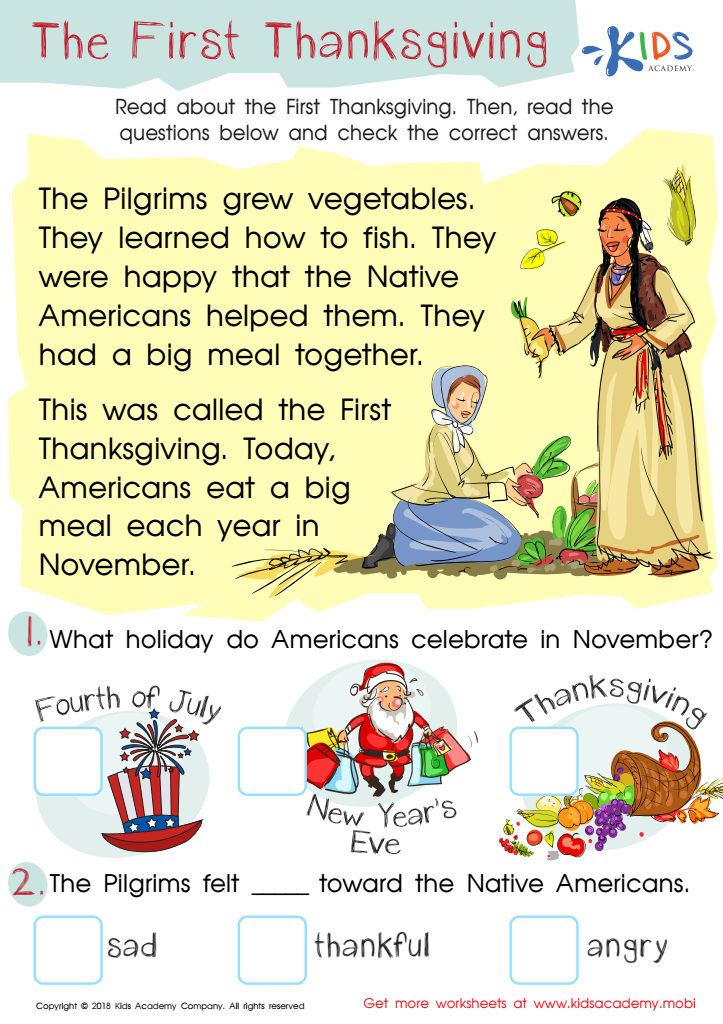

Assessment: First Thanksgiving Worksheet
When the Pilgrims arrived in America in 1620, they met the Native Americans and formed a pact to live in harmony. The Native Americans taught the Pilgrims how to survive in the new land, which helped them celebrate the First Thanksgiving. Read this text to your children and help them answer the questions below.
Assessment: First Thanksgiving Worksheet
Worksheet
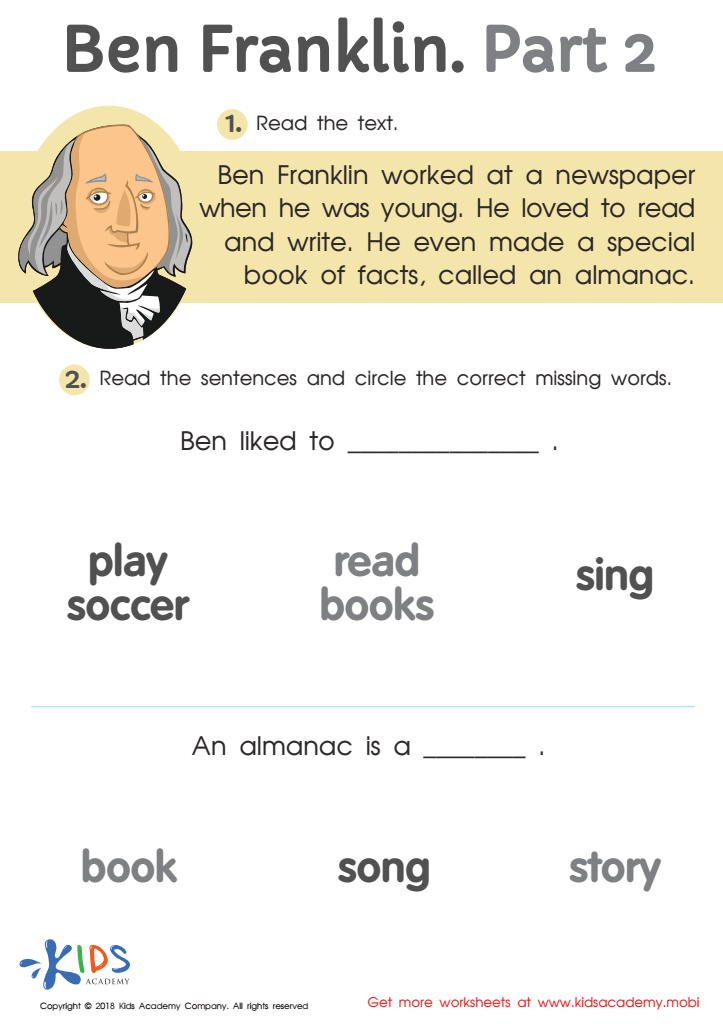

Ben Franklin Part 2 Worksheet
History is filled with great figures, like Benjamin Franklin. Let your kids in on the legacy by introducing them to the founder of the US fire department, diplomat, and inventor. Then, use a worksheet to have them fill in the blanks with the correct word to teach them more. Read the text, then read the sentences and have them circle the missing word.
Ben Franklin Part 2 Worksheet
Worksheet


Gandhi Worksheet
This worksheet will teach your children about Mohandas Gandhi and his humanitarian works. They'll read statements and identify them as true or false using answer boxes. It's a great way to teach kids about Indian history and the incredible legacy of Gandhi.
Gandhi Worksheet
Worksheet
 Assign to the classroom
Assign to the classroom


.jpg)



